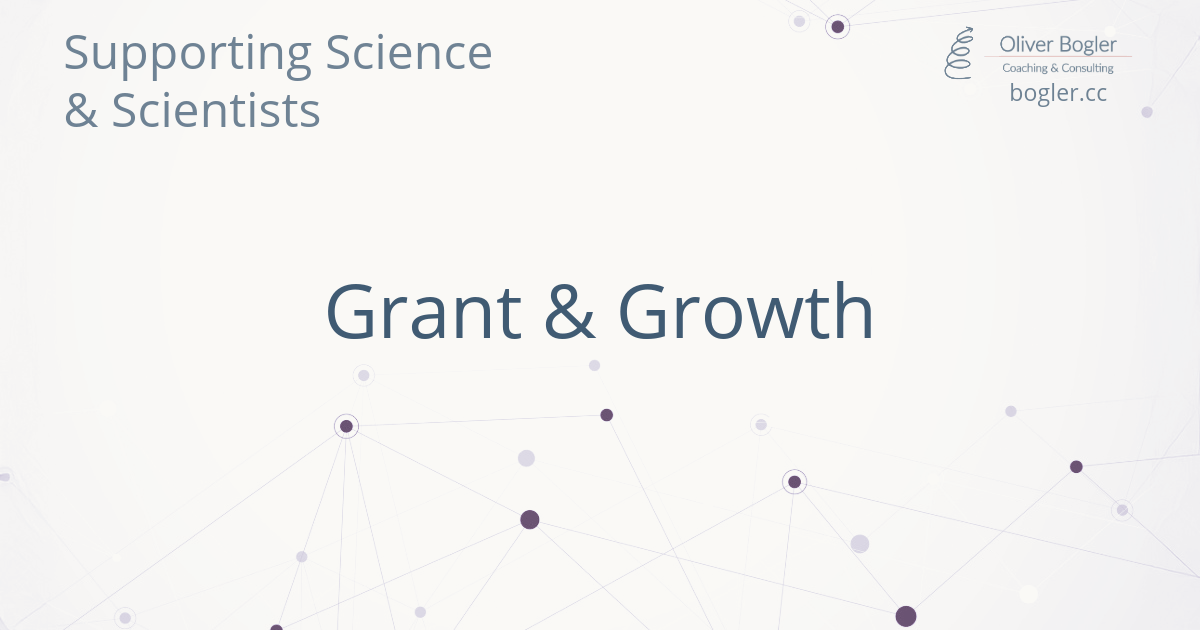Welcome {{first_name}} ! Thanks for being here for the very first edition!
🪴 Oliver’s Note - Fewer and Better
TL;DR: funding fewer early career investigators and funding them better may help save a generation of scientists in the US.
In this first edition of Grant & Growth, I feel I need to start with where we are in science today, in the US. In a recent careers update, Science described the short-term mayhem that is being caused by abrupt and deep funding cuts—actual and still anticipated—across many agencies, with NSF and NIH being of particular relevance to biomedicine. The list is familiar - funding loss, job loss, concerns about the future and all the feels that go with it.
The funding cuts are, of course, reversible by a future Administration, and even before that, Congress may soften the blow. It could lead to a gradual reversal of the current dire situation, but it may not as a lasting effect of today’s chaos is uncertainty. Even early career scientists who are doing well—getting fellowships, publishing significant advances in their field—rightly worry about what is ahead. Now that science is political in the US, who can see beyond the next election?
The likely decline in individuals pursuing science and academic careers, while horrific, doesn't have to be entirely devastating. Attracting the right talent from diverse backgrounds requires addressing the uncertainty problem. Drawing on my experience at the NCI's Center for Cancer Training, I believe funding mechanisms defining clear paths from graduate education to independence can restore a measure of certainty. This investment should extend beyond financial support to include supportive cohort networks, career development, and personal growth opportunities. One such path is represented by the F99/K00 and K99/R00 and then ESI status.
We need more such pathways, as there are many different biomedical careers, and the funding mechanisms that create them must be fiercely protected if we don’t want to lose a whole generation of talent.
🗓️ Upcoming Deadlines
Grant Submission Deadlines
Concern Foundation’s Conquer Cancer Now Award
Junior faculty working on cancer genetics, cancer biology, or cancer immunology
July 25 for Letter of Intent: Link
Thrasher Research Fund Early Career Awards
Early career investigators (residents, postdocs, fellows) in child health
September 1 for concept submission: Link
Cancer Research Institute
Early career investigators in immunology, immuno-oncology and related data science
September 1 for Irvington Postdoc Fellowships and Immuno-Informatics Postdoc Fellowship: Link
NIH Director’s Transformative Research Awards (R01 Clinical Trial Optional)
Supports individual scientists or groups of scientists proposing bold, groundbreaking, exceptionally innovative, original, and/or unconventional research with the potential to create new scientific paradigms, establish entirely new and improved clinical approaches, or develop transformative technologies.
Standard NIH Due Dates
For new R01 submissions these are Feb 5, June 5, Oct 5
For R01 renewal, resubmission or revisions these are Mar 5, July 5, Nov 5
For more information check out the NIH Standard Due Dates page.
🔦 Grant Focus
NIH
NIH Director’s Pioneer Award Program (DP1 Clinical Trial Optional)
eligibility: single PD/PI only
deadline: September 9
funding amount: $700,000 per year Direct Costs
funder: NIH
NIH Director’s New Innovator Award Program (DP2 Clinical Trial Optional)
eligibility: single PD/PI with Early Stage Investigators status
deadline: August 19
funding amount: up to $475,000 per year Direct Costs
funder: NIH
🦋 Growth Mindset - Alignment is Key
A recent post on LinkedIn from iPEC* inspired me - and kinda summed up the last 6 months of my life at NCI, where my values and what I was suddenly asked to witness and participate in were no longer the same
Burnout isn’t always about capacity.
Sometimes, it’s about misalignment.
What if you’re not exhausted from the workload . . .
but from living out of sync with your values?
This resonated with me so hard - my last 6 months at NCI were not very busy, as so much was shut down, on hold, frozen. But I felt burned out - and it was the extreme energy tax of being misaligned.
Now, in my new direction, while I feel a bit like I am walking an unfamiliar path, I am totally aligned - supporting scientists, supporting science is 💯 Oliver.
Are you aligned? If you are willing to share your take, please email me at [email protected].
*I am training in the iPEC Core Energy Coaching approach - they are a coach training organization.
🏆 Success Tools
Finding the right grant opportunity is the first step in the application process. A Reddit user, sucinguon, has created a web-scanning tool for scholarships that posts results to Discord, highlighting the potential for similar tools to become widely accessible. What is neat is that it uses AI to filter out good results. I hope lots more tools like this are in the works - if you come across any, please share them with me [email protected].
As an AI enthusiast I have been trying out Sider - it is like a whole AI companion that hangs out as a sidebar in your browser. You can summon it with an easy click to summarize, rewrite, explain, converse and all kinds of AI things. It can access lots of models, or you can go with what they call “Sider Fusion” which is “a combination of various AI models and techniques” according to itself. (warning: I am an AI fan - others may find this is too much!)
🗞️ Science & Policy Updates
🐭 NIH Shifting Away from Animal Experiments
According to a news release from the Physicians Committee for Responsible Medicine NIH will cease exclusively funding animal-based research projects and will emphasize ‘nonanimal’ methods in all new funding opportunities.
This initiative was formalized during a July 7th workshop and is driven by a commitment to prioritize human biology in research, pointing to the fact that often advances in model systems do not translate well into human medicine. It aims to expedite the development of cures and treatments, reduce drug development costs, and uphold ethical standards by minimizing animal suffering.
Key Points:
The NIH will no longer seek research proposals that exclusively involve animal experiments, signaling a major policy change.
All new NIH funding opportunities will now include provisions for nonanimal research methods, encouraging more humane practices.
This shift aligns with NIH Director Dr. Jay Bhattacharya's commitment to prioritizing human-based research technologies.
FDA Commissioner Dr. Martin A. Makary emphasized nonanimal methods can accelerate cure delivery, lower drug costs, and enhance ethics in research.
The Physicians Committee for Responsible Medicine has played a crucial role in advocating for this significant transition away from animal testing.
NIH Deputy Director Dr. Nicole Kleinstreuer has been pivotal in promoting the use of human-relevant research methods, showcasing strong leadership.
This policy change reflects a broader moral obligation to respect animal welfare while advancing scientific research effectively.
“We have to respect animals. This workshop is about reducing animal testing in every way we can while safeguarding public health.” (ibid)
❤️ To Protest Budget Cuts, Young Scientists Try Letters to the Editor
The New York Times reports (gift article link) that hundreds of graduate students are writing to their hometown newspapers to defend their research, as the Trump administration drastically reduces science funding.
This grassroots campaign, known as the McClintock Letters, aims to raise awareness about the vital contributions of scientific research in various fields, highlighting personal stories that connect science to everyday life. The initiative reflects a broader concern among young scientists about the communication gap between researchers and the public regarding the necessity and value of their work.
Thank you for making it to the end of the first edition of Grant & Growth - if you liked it may I ask that you 🙏🏼 please share it with a few friends?
Book a meeting via my website www.bogler.cc
Send an email to me at: [email protected]

